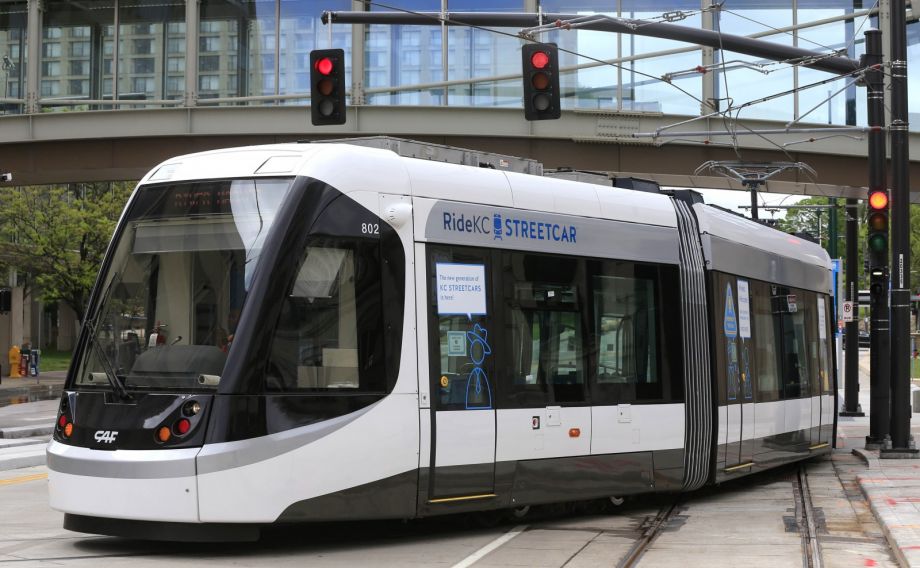Clik here to view.

(AP Photo/Orlin Wagner)
Since Kansas City unveiled a “smart” streetcar system last year, the city’s all-connected infrastructure has made it into something of a test lab for hopes — and fears — about the Internet of Things. Yesterday, the Missouri city shared its first compilation of data with a number of city and national leaders, hoping to help not just municipalities but also the federal government set “standards and best practices for big data use,” according to a press release.
As Henry Grabar reported for Next City in 2015, Kansas City’s streetcar is oh-so-much-more than public transit, making up the “spine of a body of sensors, screens and wireless Internet.” LED streetlights respond to movement, public WiFi covers a number of downtown blocks, and kiosks along the route broadcast information about transportation and city services — all with an undercurrent of public-private partnership thanks to Cisco and Sprint and more.
According to The Kansas City Star, “the city is investing $3.7 million in its high-tech innovations, with another $12 million pledged from private companies including Sprint and Cisco Systems.” The newspaper reported that the open data efforts were touted this week at a meeting of Midwest planners, at which, Kansas City Mayor Sly James said “the information will make consumers downtown ‘smarter,’ and therefore happier and likely to spend more, meaning more jobs, more money, and people who are even happier.”
This week’s release includes the launch of an open data portal where the public can see a visualization of the information being picked up in Kansas City that shows parking, traffic flow and pedestrian hubs.
Kansas City officials are bullish on the smart city trend. The city was one of the finalists in the Department of Transportation’s Smart City Challenge last year. And it was chosen as one of the leaders of a “super cluster” workshop — where it shared its data yesterday — as part of the Global City Teams Challenge, which Next City covered last year. The idea is to foster partnerships for challenges too big for any individual city, i.e., natural disasters or regional air-quality improvements.
However, as Chicago debuts sensors on lights poles, Spokane tests “smart city” technology, and parts of downtown Dallas get a high-tech makeover, the possible benefits of big data collection from sidewalk to sky need to be weighed amid considerable unknowns — and potential privacy breaches.
“There are casualties of efficiency too,” Grabar wrote in 2015. “Parking sensors that ostensibly advance consumer convenience can also be used for enforcement. The same cameras that warn trams of pedestrians can alert authorities to the presence of the homeless.”
Privacy was one issue slated for discussion with the data’s publication, according to a city release. Kansas City leaders have also created a set of principles, ratifying concepts like, say, data being used solely in a “manner that is consistent with the context in which it was collected.”
